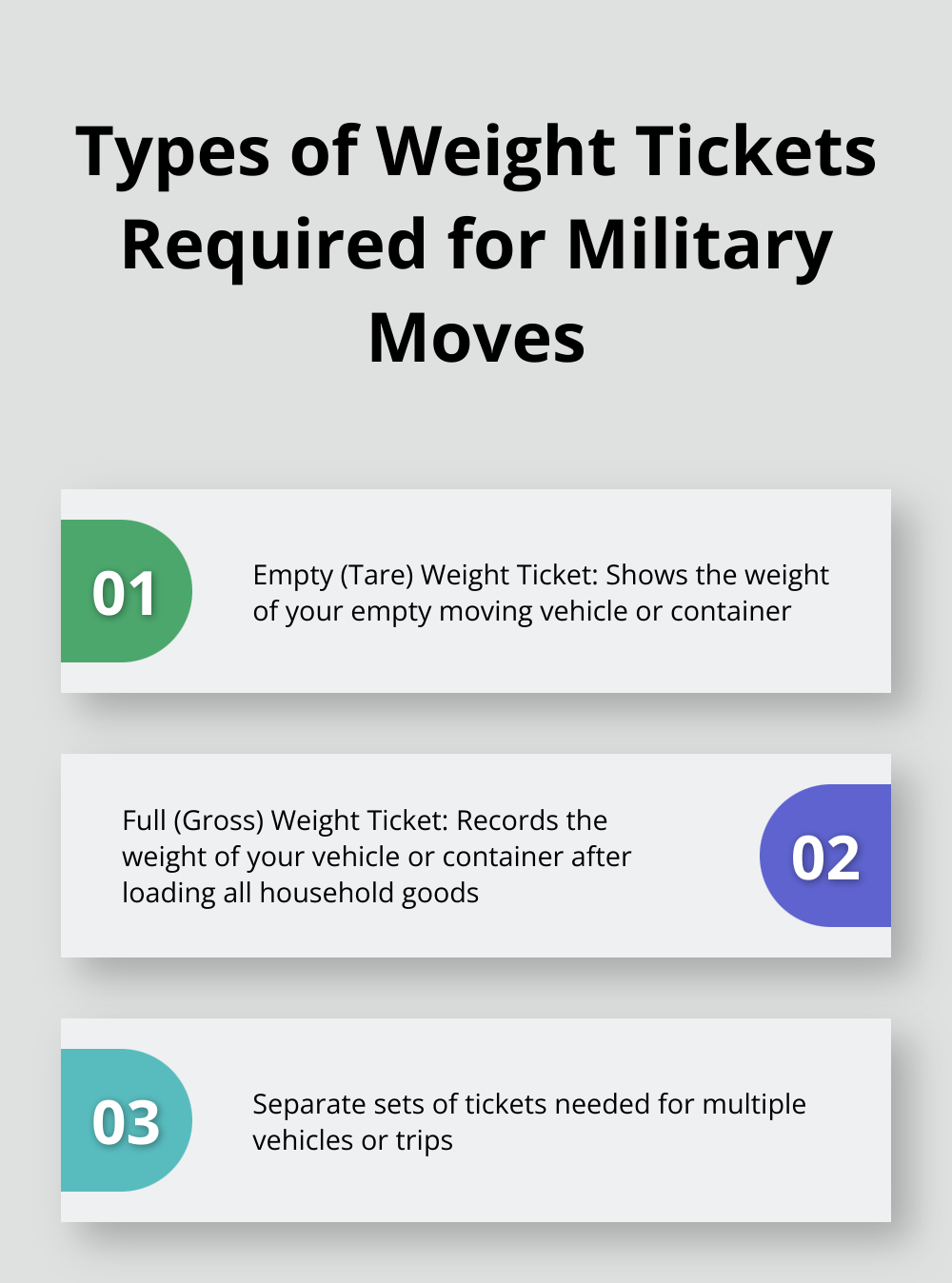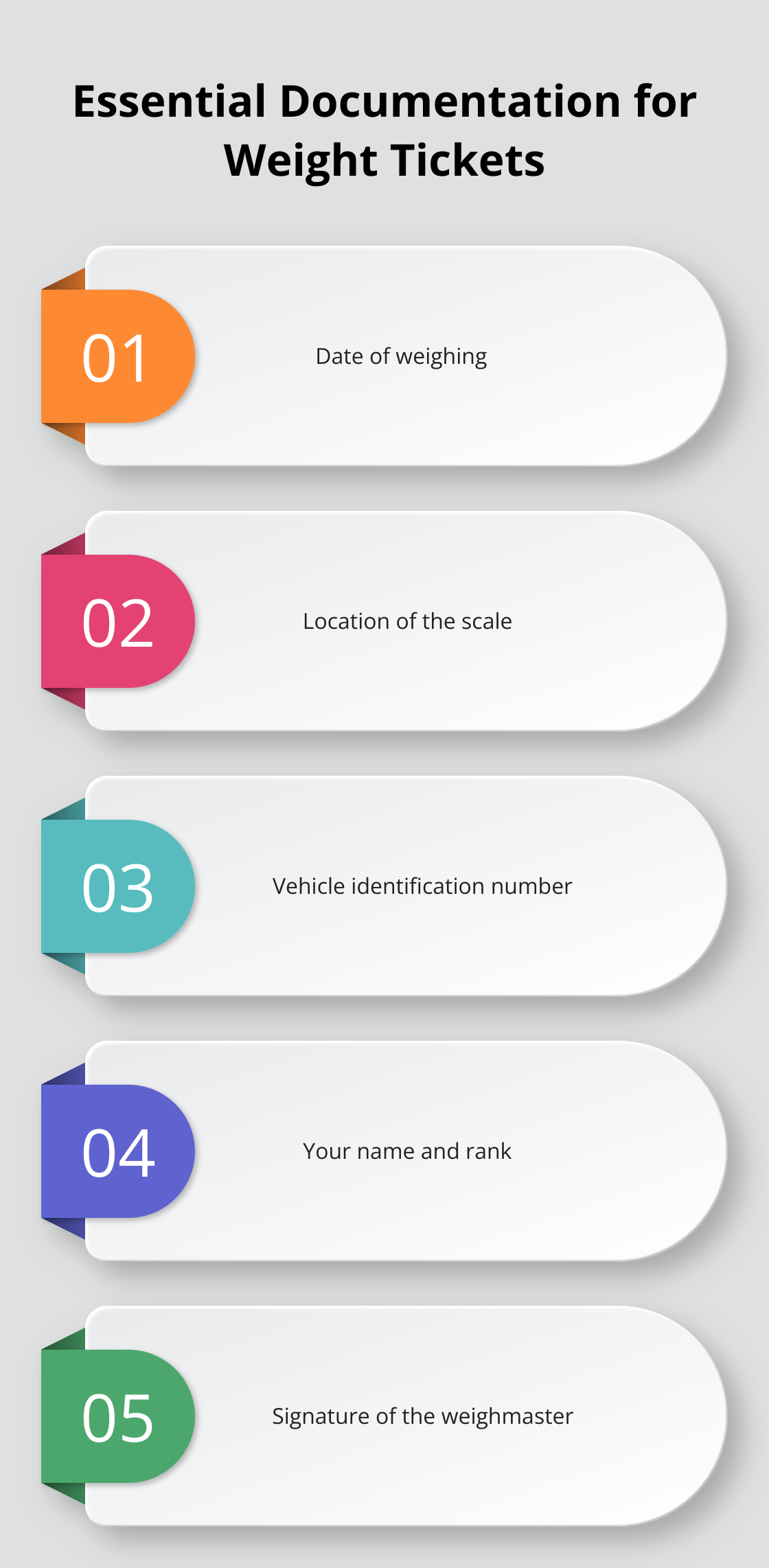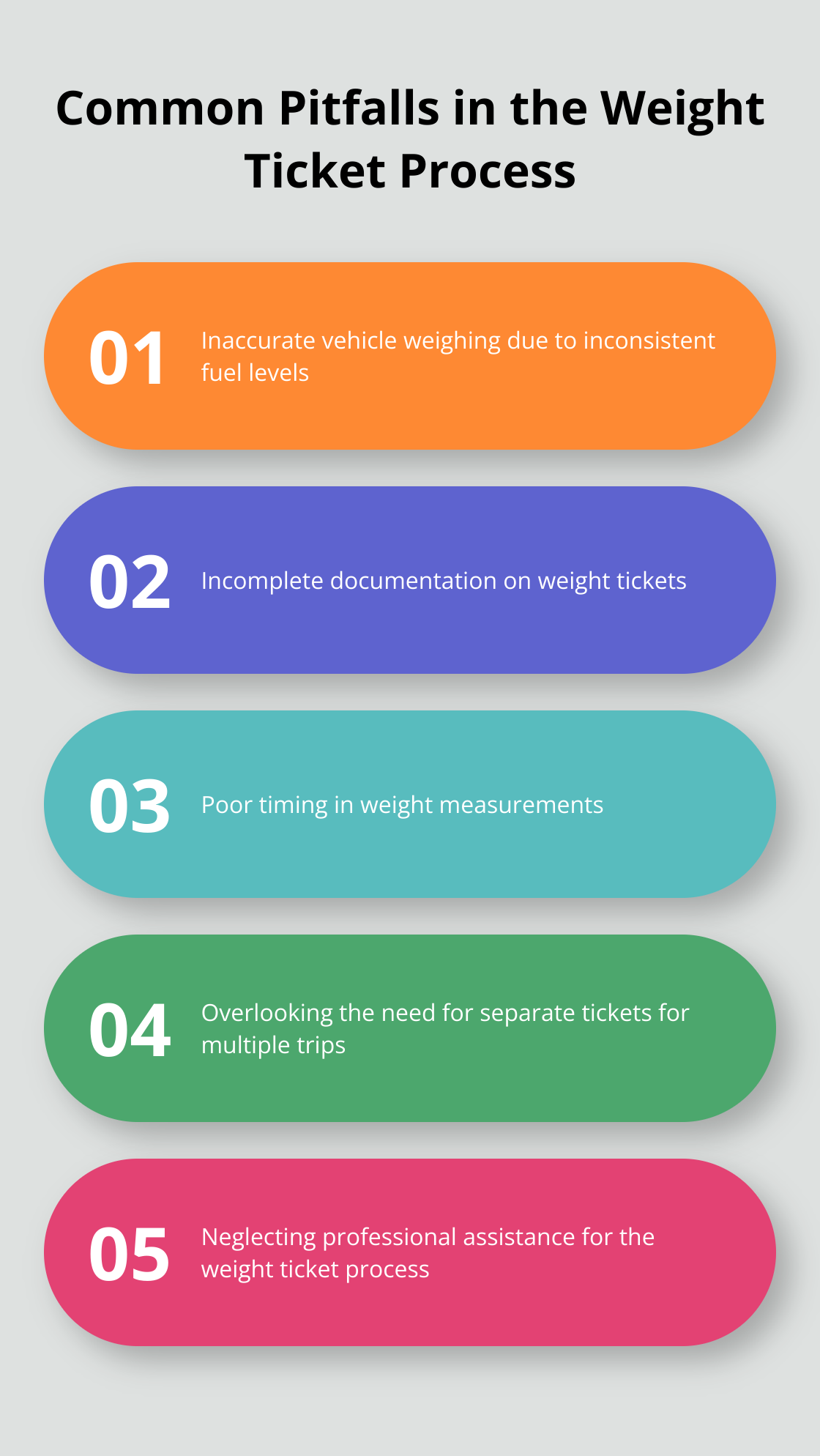Military moves can be complex, and one crucial aspect is obtaining weight tickets. At Southbay Moving Systems, we understand the importance of these documents for service members during their Permanent Change of Station (PCS).
Weight tickets for military moves are essential for determining reimbursement and ensuring a smooth relocation process. This guide will walk you through the steps to obtain accurate weight tickets and help you avoid common pitfalls.
What Are Weight Tickets?
The Basics of Weight Tickets
Weight tickets are official documents that play a key role in military moves. These tickets provide an accurate record of the weight of your household goods, which determines reimbursement during a Permanent Change of Station (PCS).
A weight ticket is a certified document issued by a qualified weighmaster at a certified scale location. It records the weight of your moving vehicle when it’s empty (tare weight) and when it’s fully loaded with your belongings (gross weight). The difference between these two weights represents the net weight of your household goods.
The Department of Defense requires service members to obtain two sets of weight tickets for their PCS moves: one for the empty vehicle and another for the loaded vehicle. These tickets must include specific information such as the date, location of the scale, vehicle identification, and the weighmaster’s signature.
The Importance of Weight Tickets
Weight tickets directly impact the amount of reimbursement you’ll receive for your move. The military calculates your moving allowance based on the overall weight of your household goods, so accurate weight tickets are essential for fair compensation.
Types of Weight Tickets Required
For a typical military move, you’ll need to obtain at least two types of weight tickets:
- Empty (Tare) Weight Ticket: This ticket shows the weight of your moving vehicle or container when it’s completely empty.
- Full (Gross) Weight Ticket: This ticket records the weight of your vehicle or container after it’s been loaded with all your household goods.
It’s important to note that if you use multiple vehicles or make several trips, you’ll need separate sets of weight tickets for each vehicle or trip. This ensures that the total weight of your shipment is accurately recorded.

Additional Considerations
Some military families have reported using PODS as a flexible and cost-effective moving solution compared to traditional rental trucks. However, the process of obtaining weight tickets remains the same regardless of the moving method you choose.
Try to familiarize yourself with the weight allowances set by the military for your move; overage can result in additional costs. PCS weight allowances are based on rank, dependency status, and move type.
Now that you understand what weight tickets are and why they’re important, let’s move on to the step-by-step process of obtaining these essential documents for your military move.
How to Get Weight Tickets for Your Military Move
Locating Certified Scales
The first step in obtaining weight tickets is to find a certified scale. Your local Transportation Office (TO) can provide a list of approved weighing stations in your area. Many truck stops, moving companies, and some recycling centers have certified scales. Call ahead to confirm their hours and any fees.
The Weighing Process
When you arrive at the scale, inform the attendant that you need weight tickets for a military move. They’ll understand the requirements. Follow these steps:
- Weigh your empty vehicle (tare weight)
- Load your belongings
- Return for a second weighing (gross weight)
Essential Documentation
Each weight ticket must include specific information:
- Date of weighing
- Location of the scale
- Vehicle identification number
- Your name and rank
- Signature of the weighmaster
Check that all this information is present and legible on both tickets.

Timing Considerations
Weigh your vehicle when it’s empty, preferably with a full tank of gas. Then load your belongings and weigh again as soon as possible (ideally on the same day). This consistency helps ensure accurate weight calculations.
Multiple Trips and Tickets
If you move in multiple loads, you’ll need separate weight tickets for each trip. Keep them organized and labeled to avoid confusion.
Verification and Storage
Before leaving the scale, double-check that all required information is on your tickets. Store them safely – these documents are essential for your reimbursement.
While companies like U-Haul offer weight ticket services, Southbay Moving Systems can handle this process for you as part of our comprehensive military moving services. Our expertise in military relocations (with over 30 years of experience) ensures you have all the necessary documentation for a smooth move and proper reimbursement.
Now that you know how to obtain weight tickets, let’s explore some common mistakes to avoid during this process. These pitfalls can potentially delay your reimbursement or even lead to financial losses.
Avoiding Weight Ticket Pitfalls

Inaccurate Vehicle Weighing
One of the most common errors in the weight ticket process is inconsistent vehicle weighing. When using truck scales, service members must maintain consistent fuel levels between empty and full weighings to avoid discrepancies. This consistency ensures accurate calculations. Some service members have weighed their vehicle empty with a half tank and full with a topped-off tank, which led to inflated weights and potential overpayment issues.
Incomplete Documentation
Missing information on weight tickets can delay your reimbursement process. Each ticket must include the date, scale location, vehicle identification, your name and rank, and the weighmaster’s signature. You should double-check these details before you leave the scale. Reimbursements have been held up for weeks due to a missing signature or incorrect date.
Poor Timing in Weight Measurements
Timing plays a critical role in weight tickets. You should weigh your empty vehicle and your loaded vehicle on the same day. If that’s not possible, try to minimize the time gap between weighings. Some military families have waited several days between weighings, during which time they added or removed items, which skewed their final weight calculations.
Overlooking Multiple Trips
If you make multiple trips, you need separate weight tickets for each load. Some military families have only obtained tickets for their first trip, thinking it would suffice for the entire move. This oversight can lead to significant underestimation of your goods’ weight and, consequently, reduced reimbursement.
Neglecting Professional Assistance
Many service members attempt to handle the weight ticket process on their own, which can lead to errors. Professional moving companies often offer weight ticket services as part of their comprehensive military moving packages. These experts can help you avoid common pitfalls and ensure all documentation is correct and complete.
Before you head to the weigh station, collect all necessary paperwork. You’ll need your military ID, PCS orders, and vehicle registration to ensure a smooth process.
Final Thoughts
Weight tickets for military moves are essential for fair reimbursement during a Permanent Change of Station. You must locate certified scales, follow proper weighing procedures, and verify all documentation. The process requires attention to detail, especially when making multiple trips or using different vehicles.
Professional moving companies can simplify the weight ticket process for you. Southbay Moving Systems specializes in military relocations and understands the complexities of these moves. We can assist you with obtaining accurate weight tickets and ensure all necessary documentation is properly prepared.
Your local Transportation Office provides valuable resources specific to your situation. The Defense Personal Property System (DPS) offers an excellent online tool to manage your move documentation. These resources (along with proper planning) will help you focus on your new assignment rather than worry about move logistics.




